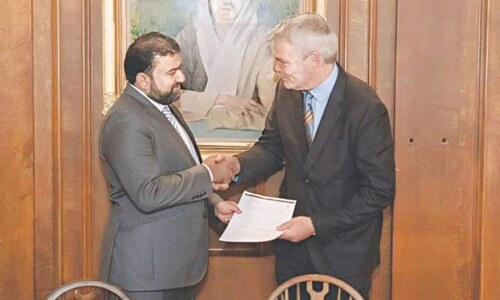THERE is often an unsettling aspect to meetings between bureaucrats and politicians on the country’s financial crisis or talks on peace and trade with foreign leaders: too few women take part in the decision-making process. Sadly, even if highly qualified, women are outnumbered by men when it comes to senior jobs in the bureaucracy. Statistics from the Establishment Division note that only 31,281 women were employed, despite the availability of 649,176 government posts, during 2016-17. In the same year, only 16,133 government employees from minority communities were employed in Punjab and Islamabad. With over 78,000 of these government posts unoccupied in this period, the question is, why were so few women and members from minority communities given jobs at the main secretariat and provinces? Despite a 10pc quota for women and a 5pc quota for minorities in public service, entrenched patriarchy and a mindset averse to inclusivity are depriving the bureaucracy of diverse talent — especially when these marginalised groups have so much to offer vis-à-vis leadership roles. For instance, even when exceptionally talented women ace the CSS exams (the three top scorers in 2016 were all women; in 2017 another 111 women were recommended for positions) only few make it to senior slots in the police, finance ministry and the foreign service. Chauvinism and hostile working conditions in the male-dominated ministries are the main reason why there are few women in senior management grades in government. Even if the bureaucracy is perceived as a gruelling choice because of its hours and postings, the careers of exceptional women must not be thwarted. Gender inclusivity must be addressed by the Public Commission.
When Prime Minister Imran Khan spoke to bureaucrats on serving Pakistan with commitment and adopting his government’s policy reforms, he failed to mention that the bureaucracy is freezing out talented women candidates. Surely, the government has a duty to address the large gender gaps in public service, and to acknowledge that the abilities of both men and women are equal when it comes to the task at hand. Given the glacial pace of change, progress on closing the gender gap in politics and public service remains obstructed. The situation calls for immediate remedial action. The prime minister must be reminded that too few women at the top means that half the country’s population is being kept out of the process of national decision-making.
Published in Dawn, September 25th, 2018






































